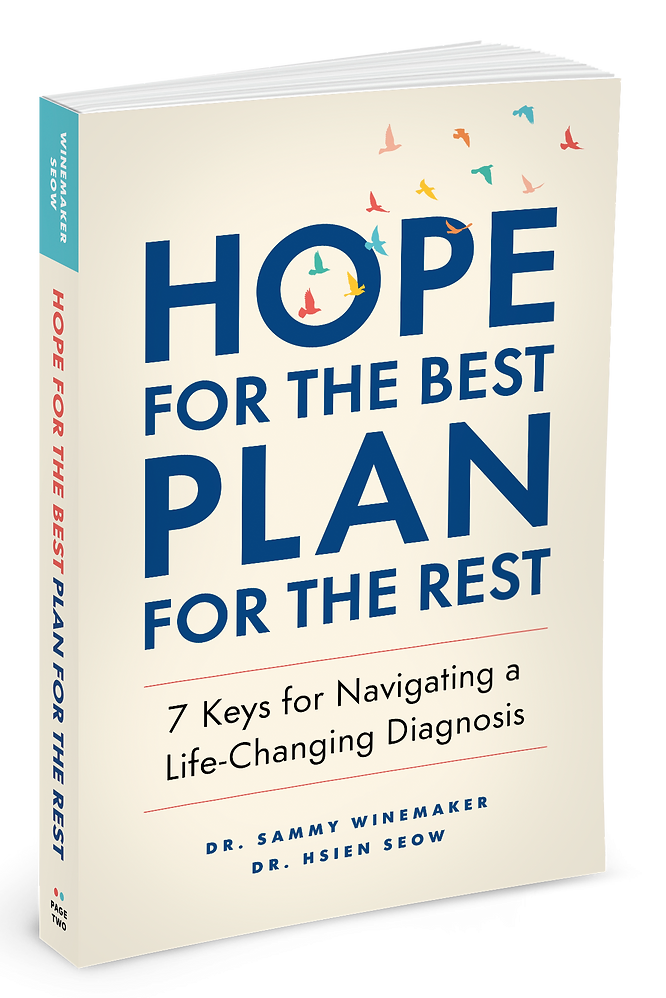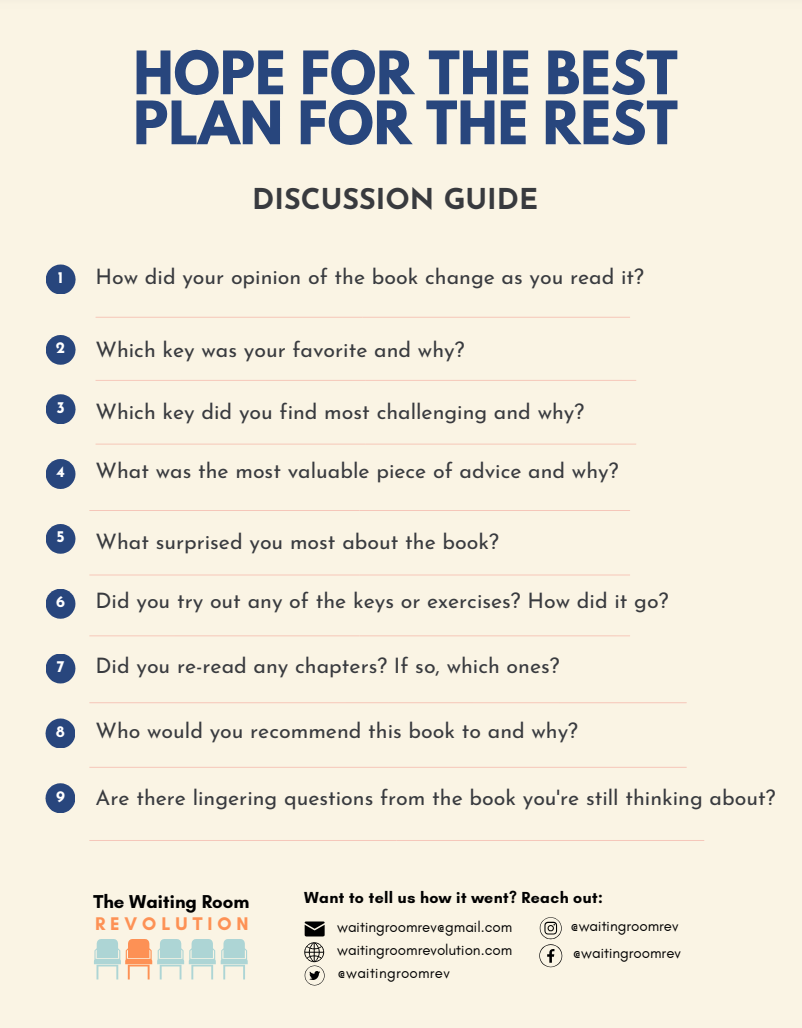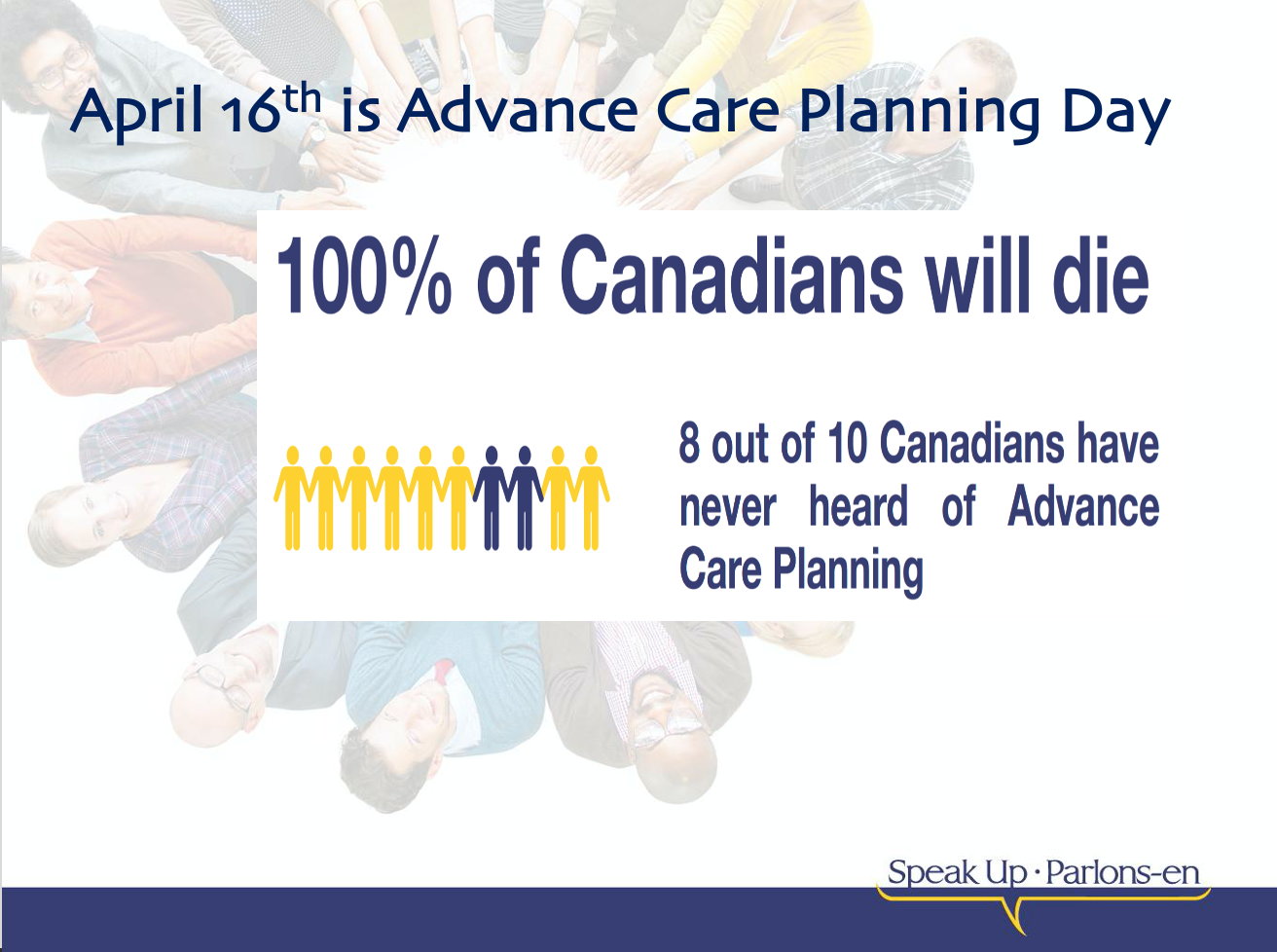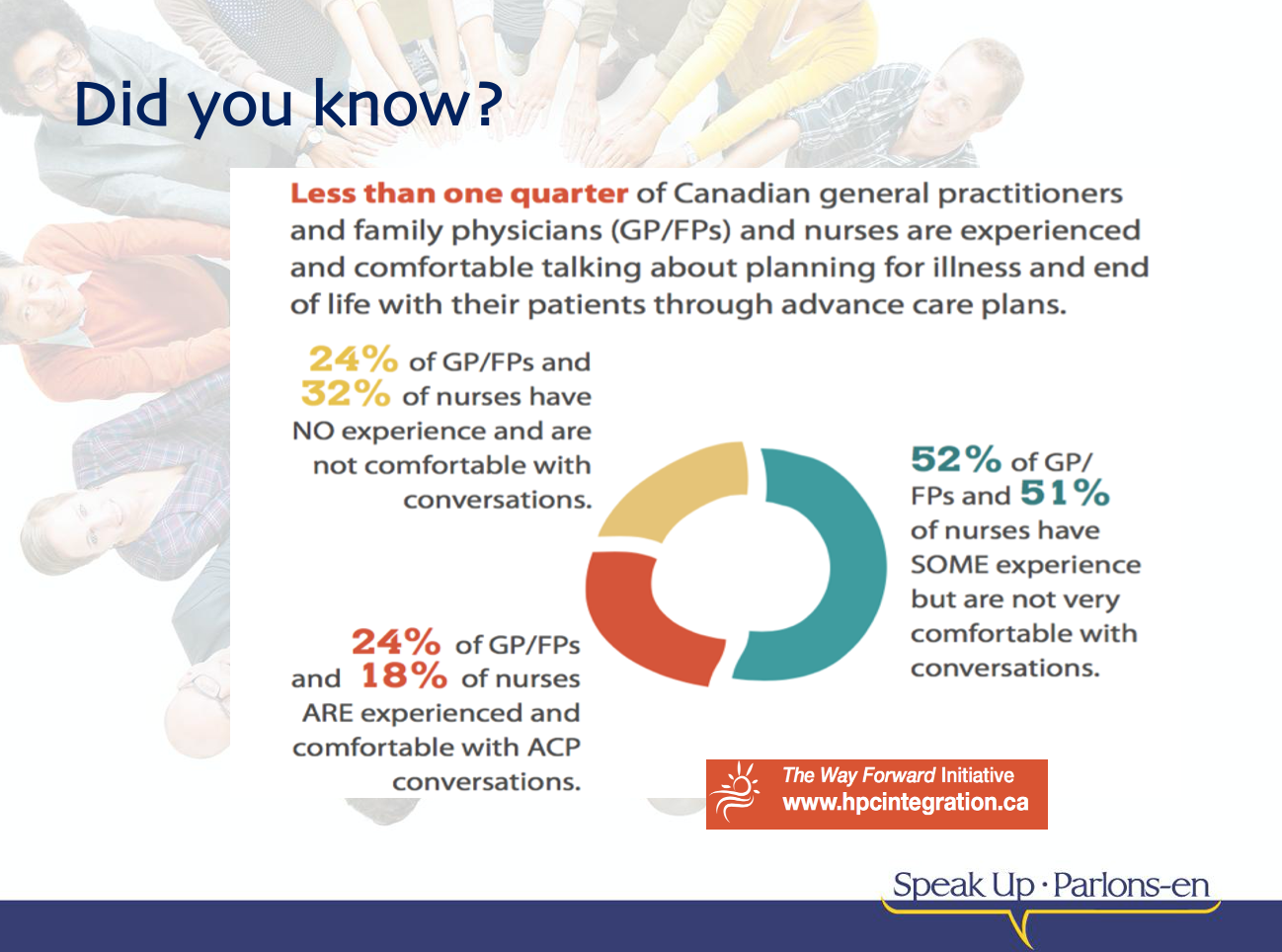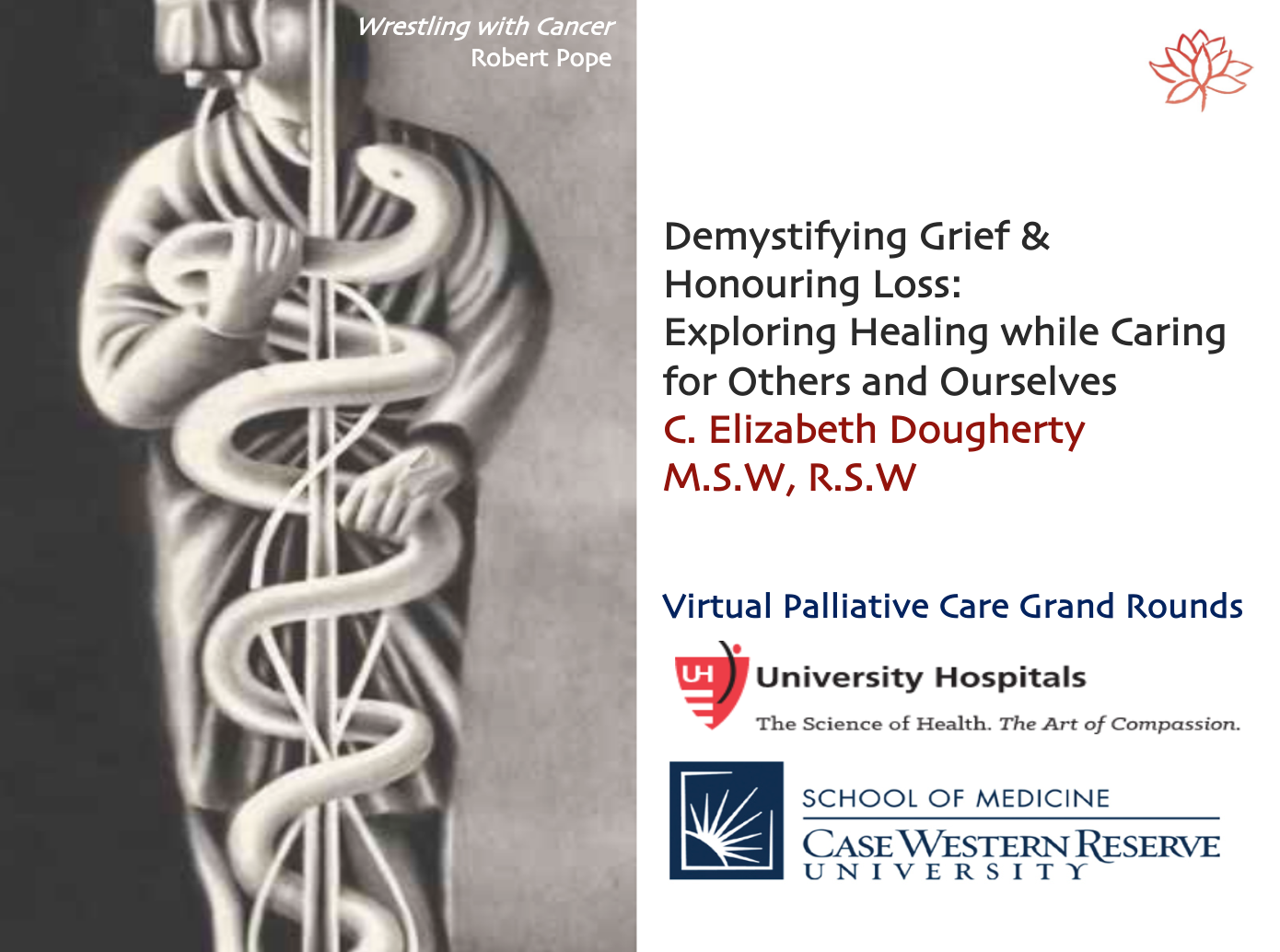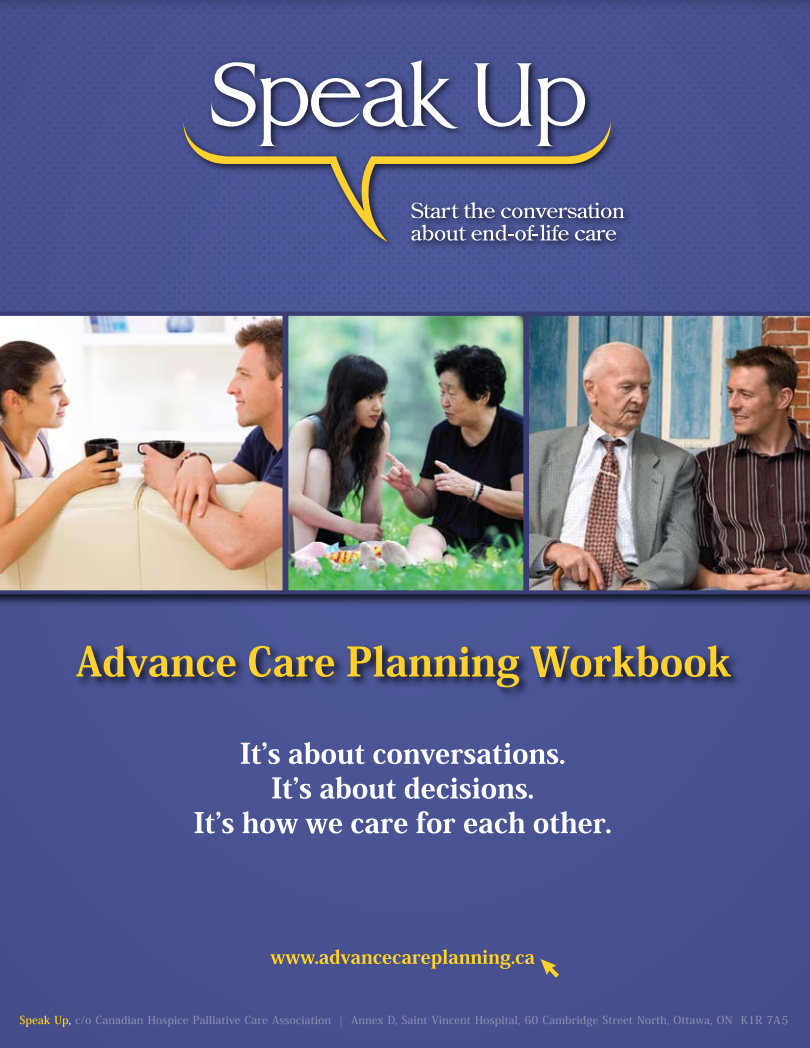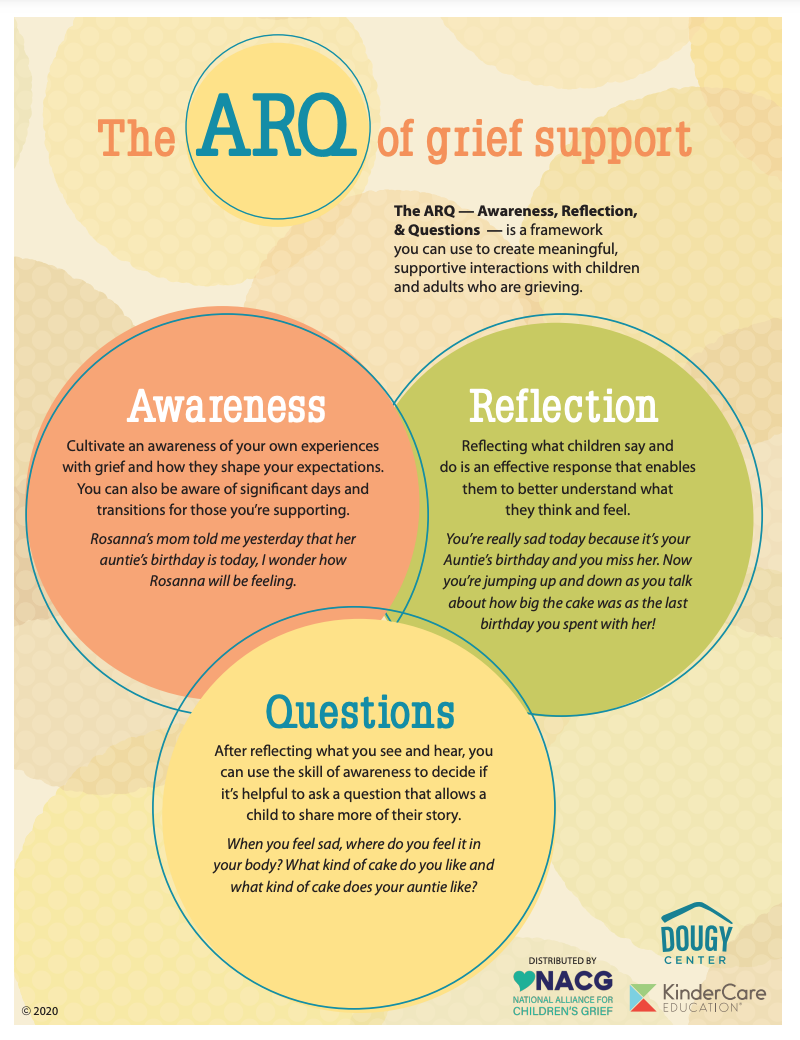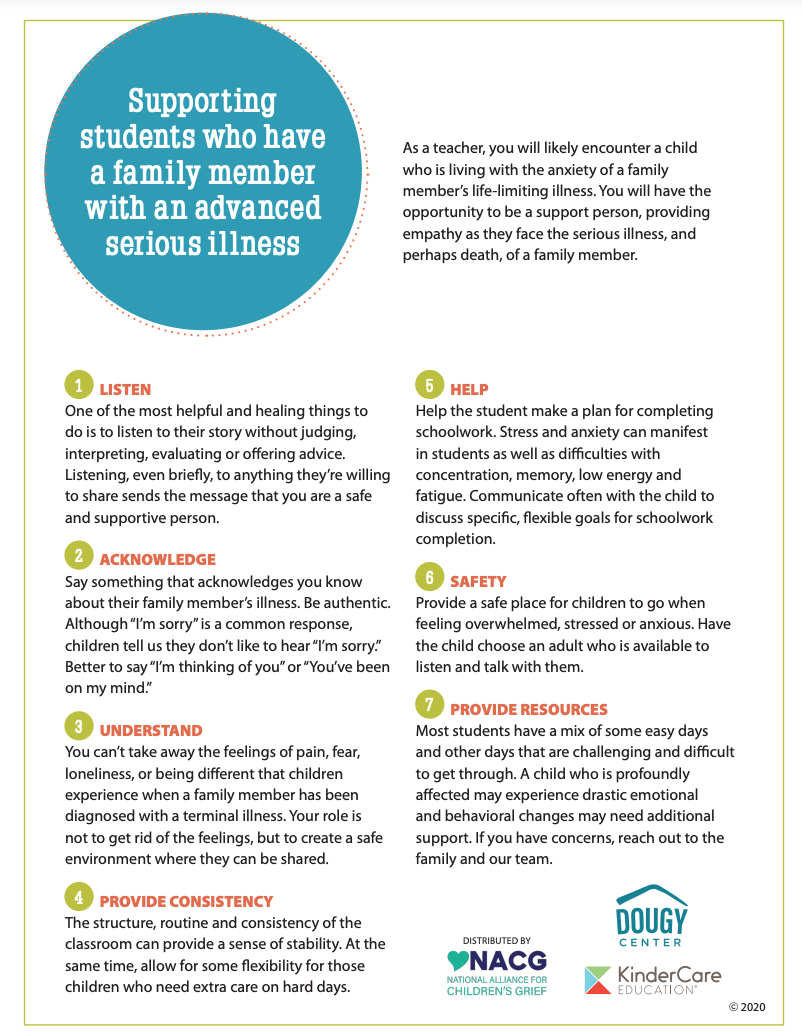"The essential guide for every patient and family.
When you are diagnosed with a life-changing illness, it can be overwhelming. While your diagnosis cannot be changed, the way you experience your illness can.
In Hope for the Best, Plan for the Rest, we draw on our decades spent researching and caring for thousands of seriously ill patients to reveal the seven keys for a better illness experience. With real-life stories, tips, and exercises to improve your journey right from diagnosis, we want to empower you with practical tools to navigate the healthcare system with knowledge, confidence, and clarity.
You can find hope in the face of uncertainty. You can live well, be fully informed, and be activated - and feel more like a person and less like a patient. But most of all, you can be hopeful and prepared at every step along the way."
Source: Waiting Room Revolution
Holding Exquisite Presence When Supporting Children and Their Families Who are Grieving
I was incredibly honoured to join my compassionate friend and dear colleague, Rami Shami, in a creative space, talking about the need for grief to come out of the shadows.
“How we support children and youth in their grief can have a lasting impact on their mental, emotional, even physical health. Joining us on this podcast is an individual who draws on her knowledge and experiences as an educator, a clinician in private practice, and a mother, in sharing how to hold what she calls, 'exquisite presence,' when supporting children and youth who are grieving. Her approach, garnered through decades of in the field work within numerous settings, highlights practical and informative insights into the disenfranchisement of grief amongst children, and how promoting safe spaces can help children process their experiences of loss. Join us for an exceptional informative and educational podcast!”
Source: The Lighthouse Beacon Podcast
April 16th is Advance Care Planning Day in Canada
Planning for future healthcare needs is important.
Who would you trust to make healthcare decisions?
Do you know what would happen if you couldn’t communicate for yourself?
Who would you trust to make those healthcare decisions on your behalf?
Think about:
Who you would trust with making important decisions for you.
What matters most in your life and how that might help guide healthcare decisions you would want.
Consider:
Do you know what would happen if you couldn’t decide for yourself?
Who do you trust to make healthcare decisions that respect your wishes?
Would that person (or people) be able to make important decisions about your health in an emergency?
Have you spoken to anyone about what matters most in your life?
What gives you strength in difficult times?
Are spiritual, cultural or religious beliefs, practices, or ceremonies are important to you?
The best time to think about this is NOW (in advance of a medical crisis), while you can make decisions and communicate for yourself. You have the power to choose who that person is. They can be a family member, a friend, or anyone in your life that you trust to make the kinds of healthcare decisions you would want.
Ask yourself: If not you, who?
Source: Advance Care Planning Canada
It is never too early, but it can be too late!
To learn more about Advance Care Planning in 5 Steps, visit Advance Care Planning Canada to access helpful free toolkits and guides to help you along the way.
Demystifying Grief and Honouring Loss: Exploring Healing While Caring for Others and Ourselves
I am incredibly honoured to deliver Virtual Palliative Care Grand Rounds, “Demystifying Grief and Honouring Loss: Exploring Healing While Caring for Others and Ourselves” at University Hospitals, Case Western Reserve University School of Medicine.
In healthcare we move through an array of experiences, navigating acute emergencies, illness, death and a myriad of non-death losses, for ourselves, for all we love, and all we serve.
What about experiences that cannot be cured or fixed? As Dr. Kenneth Doka states, “Grief is a reaction to loss. We often confuse it as a reaction to death. It’s really just a very natural reaction to loss. When we lose any significant form of attachment, it’s the process of adjusting”.
There is no closure or “getting over” loss, nor are there finite timelines in grief.
We continue to grieve someone (or something) after loss and the cumulative effects and secondary losses that follow. Grieving the loss means learning to move forward, integrate, and metabolize the loss(es), while honouring the connection in meaningful and supportive ways.
In the face of trauma, loss and uncertainty, it can feel overwhelming to consider moving forward. Tedeschi & Calhoun highlight the importance (and benefit) of Post-Traumatic Growth, specifically:
Traumatic events are not viewed as desirable
Stories of others moving through trauma are always important in post-traumatic growth
Strength is often correlated almost paradoxically, following an increased sense of being vulnerable
In Kitchen Table Wisdom, Dr. Rachel Naomi Remen writes, “The expectation that we can be immersed in suffering and loss daily and not be touched by it is as unrealistic as expecting to be able to walk through water without getting wet.”
There is healing power in connecting with the voices and stories of others. I am grateful to share a space to honour healing in healthcare, in the face of grief, loss, connection and community.
Undergraduate Medical Education: From White Coat to Blue Gown
I was incredibly honoured to once again facilitate this annual lecture in memory of Dr. Barbara Tatham at the Michael G. DeGroote School of Medicine at McMaster University.
Barbara was a medical student at McMaster University and went on to become an innovative Family and Emergency Room Physician and collaborative Medical Educator. After enduring a courageous battle with cancer, at the age of 32, Barbara died on October 16, 2019, a few short weeks after delivering her final extraordinary undergraduate medical education lecture, Barbara left us with her last lecture, a precious legacy, recorded at McMaster, selflessly demonstrating her indomitable spirit and compassion.
We have been fortunate to maintain contact with Barbara’s family since 2019. Their hope is that medical students while remembering Barbara’s empathy, will consider their own humanity as they go on to care for patients, families and themselves.
FREE Death Café on Wednesday June 28th at McMaster University
I am honoured to facilitate this FREE Death Café on Wednesday June 28th (6-8pm) at the David Braley Health Sciences Centre, McMaster University on behalf of The 100% Certainty Project. Death: Something to Talk About.
We will highlight the articles, “You May Want to Marry My Husband” (written by Amy Krouse Rosenthal, 2017) and “My Wife Said You May Want to Marry Me” (written by Jason B. Rosenthal, 2018), alongside the 2018 TED Talk “The journey through loss and Grief” and 2020 book, “My Wife Said You May Want to Marry Me” by Jason, (named one of time’s best new books).
This event is featuring “My Wife Said You May Want to Marry Me”, an extraordinary 2023 book selection for The 100% Certainty Project. Death: Something to Talk About. The book “is an inspiring memoir of life, love, loss, and new beginnings by the widower of bestselling children’s author and filmmaker Amy Krouse Rosenthal, whose last of act of love before her death was setting the stage for her husband’s life without her in a column in the New York Times.” Source: https://www.jasonbrosenthal.com/books
Registration is required for this FREE Death Café on Wednesday June 28th (6-8pm) via Eventbrite at: https://www.eventbrite.ca/e/death-cafe-tickets-657227203257?utm_source=eventbrite&utm_medium=email&utm_content=follow_notification&utm_campaign=following_published_event&utm_term=Death+Cafe&aff=ebemoffollowpublishemail
Please note: Death Café is an international movement where people, often strangers, gather to eat, drink tea and discuss death. The objective is 'to increase awareness of death with a view to helping people make the most of their (finite) lives’.
At Death Café, you can expect a group directed discussion of death with no agenda, objectives or themes. It is a discussion group. Please note that Death Café is NOT a grief support group, nor is this a grief counselling session.
Death Café is a respectful, public event where people of all communities and belief systems are welcome to have discussions about death. Interesting conversation is guaranteed! For more information, please visit Death Café. https://deathcafe.com/
Planning for My Care: Proud, Prepared & Protected
April 16th is National Advance Care Planning Day in Canada
Planning for My Care part of Proud, Prepared & Protected is a FREE booklet focusing on care conversations 2SLGBTQ+ people and healthcare providers to start conversations about values, wishes and concerns to help identify who you would want to make decisions, your Substitute Decision Maker (SDM) on your behalf should you not be able to make decisions for yourself.
Access FREE via https://www.virtualhospice.ca/2SLGBTQ/media/igkp01nf/2slgbtq-planning-for-my-care.pdf
Many who are 2SLGBTQ+ have experienced or witnessed discrimination and ignorance in a healthcare setting. You may have received inappropriate care or, even worse, been denied care. Some healthcare workers are not aware of the challenges the 2SLGBTQ+ communities face.
This document, focusing on care conversations for Two-Spirit and Lesbian, Gay, Bisexual, Trans, Queer, and all sexual and gender-diverse people, is intended to help you think about what is important to you, concerns you might have, and who you would want to make decisions for you if a time comes when you can’t make decisions for yourself.
Consider giving a copy of this document to the important people in your life, and sharing this information with healthcare providers. Take it with you when you attend appointments, call 911, visit the emergency department, or access other healthcare services. If your province or territory has a process for documenting your wishes for care, ensure this information is included on those documents and kept in the same place.
Source: Canadian Virtual Hospice
ADDITIONAL RESOURCES:
For more information on advanced illness, advance care planning, palliative care, end-of-life care and grief, please visit:
Canadian Virtual Hospice www.virtualhospice.ca
Advance Care Planning Canada values a free, accessible and open shared knowledge amongst the community. The website provides you with all the necessary tools to inform yourself on the most recent advanced care planning updates and developments. For more information and FREE resources, visist: https://www.advancecareplanning.ca/
FREE Advance Care Planning (ACP) workbooks
April 16th is National Advance Care Planning Day in Canada
“If Not You, Who? Who would you trust to make your healthcare decisions? Planning for your future healthcare needs is important. So, we’re asking: Do you know what would happen if you couldn’t speak for yourself? Who would you trust to make those #healthcare decisions for you?
You have the power to choose who that person is. They can be a family member, a friend, or anyone in your life that you trust to make the kinds of healthcare decisions you would want.
Think about who you would trust with making those important decisions for you.
Think about what matters most in your life and how that might help guide someone in making the kinds of healthcare decisions you would want.
The best time to think about this is now when you can speak for yourself. We have useful guides to help you along the way.
Choosing a Substitute Decision-Maker (SDM)
Advance Care Planning policies can vary dependent on your province or territory. In order to ensure your end of life wishes are honoured it is crucial to have an understanding of your province or territory policies. This includes understanding what your #rights and #privileges are, as well as understanding the laws and regulations regarding end of life care, specific to your province or territory. While creating your advance care plan it is also important to make sure that you are using the correct documents for your province or territory.
Who do you trust most to make decisions for your health care that follow your wishes?
Would that person be comfortable with making important decisions about your health quickly or in an emergency?
Have you spoken to them about what matters most in your life? When someone knows what you value most in your life, they can make more informed decisions about your health care.
What Matters Most? What does a good day look like for you?
What situations do you find difficult?
What gives you strength in difficult times?
What spiritual, cultural or religious beliefs, practices, or ceremonies are important to you?
What do you value more: the possibility of a longer life, or the possibility of a better quality of life?
These questions can help guide you and your substitute decision-maker and assist them to prioritize what matters most to you when weighing care options.
April 16th is Advance Care Planning Day. So, ask yourself: If not you, who?”
Source: Advance Care Planning Canada
There are multiple FREE Advance Care Planning (ACP) workbooks, toolkits and guides specifically created to follow the provincial/territorial requirements for your advance care plan. Visit for FREE FREE Advance Care Planning (ACP) resources across Canada https://www.advancecareplanning.ca/acp-across-canada/
The 100% Certainty Project: FREE Event
I am honoured to be a member of both The 100% Certainty Project and the Division of Palliative Care at McMaster University.
The 100% Certainty Project, in partnership with Epic Books, PX Dermody Funeral Homes and the Hamilton Public Library, advocates that issues of #death, #dying, #grief and #bereavement need to be “reclaimed” by the community - by private citizens who are accustomed to end-of-life care being provided by our #healthcare system.
The 100% Certainty Project is hosting a FREE MOVIE at The Westdale Theatre in #HamOnt on Monday, March 27th (6:45pm). JOIN US in the beautifully renovated historic Westdale Theatre as we view the film (based on the #1 New York Times bestseller A Man Called Ove, a previous 100% Certainty Project book selection). This celebration-of-life story is a major motion picture starring Tom Hanks!
“Meet Ove (a.k.a. Otto) - the kind of man who points at people he dislikes as if they were burglars caught outside his bedroom window. He has staunch principles, strict routines, and a short fuse. People call him “the bitter neighbor from hell.” But must Ove be bitter just because he doesn’t walk around with a smile plastered to his face all the time?
Behind the cranky exterior there is a story and a #sadness. So when one November morning a chatty young couple with two chatty young daughters move in next door and accidentally flatten Ove’s mailbox, it is the lead-in to a comical and heartwarming tale of unkempt cats, unexpected friendship, and the ancient art of backing up a U-Haul. All of which will change one cranky old man and a local residents’ association to their very foundations.
Fredrik Backman’s beloved first novel about the angry old man next door is a thoughtful exploration of the profound #impact one life has on countless others.” (source: Simon & Schuster)
REGISTRATION IS REQUIRED ON EVENTBRITE via https://www.eventbrite.ca/e/a-man-called-otto-free-screening-tickets-581260484757
Medical Education: Honouring life, love, loss and legacy at McMaster University
Incredibly honoured to facilitate the Annual Dr. Barbara Tatham Memorial Lecture & thank her sisters Erica, Deanna & Laura for joining us to demystify grief, honour loss & explore healing while caring for others and ourselves. Honouring Dr. Tatham's life, legacy and brilliant contributions to Medical Education at McMaster University.
Honouring person and family-centred care is ESSENTIAL from time of diagnosis, throughout treatment, into remission, at end-of-life, and into bereavement.
A cancer diagnosis is traumatizing. Finding community, support and connection is essential in the face of trauma. Stories of others moving through trauma are always important in post-traumatic growth (Tedeschi & Calhoun). Strength is often correlated, almost paradoxically, following an increased sense of being vulnerable - of being human.
Today, please take a moment to connect with your breath, honour your strengths and make space for who and what matters most in your life. ❤️
Today is the Annual #TerryFoxRun. To support Dr. Tatham's life, legacy and indomitable spirit in the face of cancer, please donate to #TeamBarb https://run.terryfox.ca/team/teambarb
The ARQ of Grief Support
The ARQ of Grief Support:
Awareness
Reflection
Questions
The ARQ of Grief Support via NACG, The Dougy Center & KinderCare is a framework you can use to create meaningful, supportive interactions with children, teens and adults facing grief, loss & grieving
Source: https://childrengrieve.org/12-resource/309-resources-2
Supporting children and youth who have a family member with an advanced serious illness
Supporting children and youth who have a family member with an advanced serious illness via NACG The Dougy Center & KinderCare
At some point, we all encounter a child or teen who is living with the anxiety of a family member’s life-limiting illness. You can have the opportunity to be a support person, providing empathy as they face the serious illness, grief, loss and perhaps death, of a family member.
Some considerations include: Listen, Acknowledge, Understand, Provide Consistency, Help, Safety, Provide Resources
Source: https://childrengrieve.org/12-resource/309-resources-2
April 16th is Advance Care Planning Day in Canada
April 16th is National Advance Care Planning Day in Canada, a day to promote conversations about your wishes and values for your future health and personal care in the event that you are unable to communicate for yourself. This year’s #ACPDay2021 is based on the theme "Advance Care Planning: An Essential Conversation for Everyone".
The ACP in Canada website - https://www.advancecareplanning.ca/acpday/ - features FREE downloadable resources, including posters and social media graphics for organizations and individuals across Canada to promote ACP.
Canadians have spoken, and although 80% of the population believes Advance Care Planning is important, less than 1 in 5 Canadians have an Advance Care Plan. Fortunately, the ACP website at www.advancecareplanning.ca is full of free information, tools, and conversation starters to help with starting the conversation. There are also links to provincial and territory-specific ACP resources across Canada.
How are you connecting with friends and family during these times? #ACPinCanada.
A Conversation... About Advance Care Planning, Life, Love, Loss & Legacy
SO grateful to have this conversation about Advance Care Planning, Life, Love, Loss & Legacy with Laurel Gillespie at Advance Care Planning Canada with the Canadian Hospice Palliative Care Association.
Creating safe spaces for people to have informed conversations about wishes and values is so important. Exploring and honouring connections and meaning for any individual and family in the face of illness and loss can be invaluable.
Please join us for a discussion about these invaluable conversations, while also exploring ways to connect with healthcare providers, and most certainly, with those we love.
Consider who, and what, gives your life meaning? Not just at the end of life, but now. It’s never too soon, but it can be too late.
Click here to listen to this episode of “A Conversation With…”
In support of Movember, a free webinar demystifying Advance Care Planning for Men with Prostate Cancer
In support of Movember Canada & TrueNTH, am sharing a free webinar demystifying Advance Care Planning for Men with Prostate Cancer.
Facing prostate cancer is difficult enough. But advance care planning (ACP) can give your loved ones the confidence and peace of mind to make healthcare decisions for you if you are unable to communicate for yourself. This webinar will provide information about why ACP is important, and a step-by-step guide to advance care planning.
The purpose of this workshop is to:
- Provide an overview of ACP
- Foster understanding as to why ACP is important for anyone facing prostate cancer,
- Help men with prostate cancer, their partners and families learn the steps involved in the ACP process, and how to start these conversations,
- Explore some free ACP resources from Advance Care Planning Canada
The free webinar can be accessed via https://vimeo.com/189996475
C. Elizabeth Dougherty Consulting 2020 Newsletter
Trusting that even the longest, hardest endings lead to brand new mornings.
Sharing the beautiful words and artwork from Morgan Harper Nichols.
"You will grow how you were meant to. One morning you will wake up and realize that even though so many things aren’t the same anymore, there is still more in store. Because knowing 'there is more in store' doesn’t mean believing that everything will be easy, it means trusting that even the longest, hardest endings lead to brand new mornings.
In this life you will have moments that leave you speechless. You will look to the one you love and wonder, how on earth did you get to live this life. You will also have nights that leave you restless where you are left to ask, what will it look like to survive. And you will also have a billion moments in between. You will weave in and out of beginnings and endings and somehow, through it all, you will end up growing in the way you were meant to. You will be tender and you will be strong and you will be glad you lived to see beautiful things flourish, even though they took so long. You will heal along the journey. You will find: you were always learning. Strength was rising up within you. You bloomed how you were meant to. MHN"
Experiences of Grief and Loss: Exploring Support & Resources
Excited to be presenting "Experiences of Grief and Loss: Exploring Support & Resources" for A Better Mind at the Oakville Mental Heath Symposium. For more information, or to register, please contact http://abettermind.ca/
Death Cafe for healthcare professionals, health science students or healthcare volunteers
Excited to be facilitating another Death Cafe for the Division of Palliative Care, McMaster Faculty of Health Sciences at McMaster University.
If you are a Healthcare Provider, Health Science Student, Hospice Palliative Care Volunteer or Funeral Service Employee, this Death Cafe is specifically for you!
A Death Cafe is a group directed discussion of death with no agenda, objectives or themes. It is a discussion group rather than a grief support or counselling session. The objective is 'to increase awareness of death with a view to helping people make the most of their (finite) lives'. Source: Death Cafe
Please join us at this FREE event at the David Braley Health Sciences Centre on Wednesday, July 24th from 6-8pm as part of our Public Health Palliative Care Elective.
Please help spread the word. While the event is free, registration is required via Eventbrite: https://www.eventbrite.ca/e/death-cafe-tickets-62361840945?fbclid=IwAR2aqlWTC8CcDPU4TKspXU3hZC65Om4ZxZZikvgh9ztqz3TEUe9GJcFLJ00

